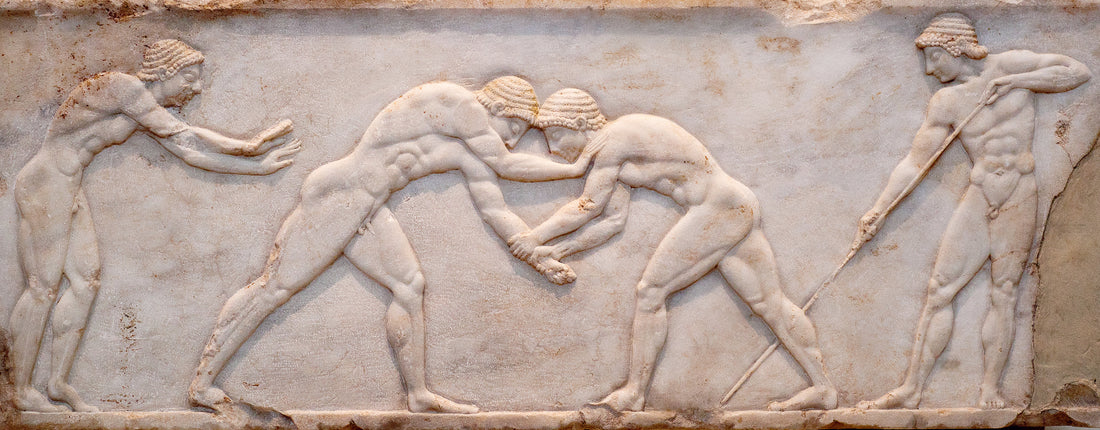Ancient Greece is renowned for its rich history, culture, and contributions to the world. From philosophy to architecture, the Greeks left an indelible mark on civilization. One aspect of their culture that often goes unnoticed is their martial arts tradition, particularly the ancient combat sport known as Pankration.
What is Pankration?
Pankration, which translates to "all powers" or "all forces," was a combat sport that originated in ancient Greece around the 7th century BCE. It was a combination of boxing and wrestling, allowing the use of both striking and grappling techniques. Pankration was considered one of the most brutal and intense sports of its time.

Origins and Historical Significance
Pankration was not only a sport but also an essential part of Greek military training. It was believed to have been developed by the Spartans, who valued physical strength and combat prowess. The sport gained popularity throughout Greece and became a prominent event in the ancient Olympic Games.
Legend has it that Pankration was inspired by the mythical battle between Hercules and the Nemean Lion. Hercules used a combination of wrestling and striking techniques to defeat the lion, which served as the foundation for the sport.
The Rules of Pankration
Pankration had very few rules compared to modern combat sports. Fighters were allowed to strike with their fists, feet, and knees, as well as execute various grappling techniques. The only prohibited moves were eye gouging and biting. Despite the lack of rules, Pankration matches were not always fights to the death, as some historical accounts suggest.
Famous Pankration Fighters
Several notable figures in ancient Greece were renowned for their Pankration skills. One such individual was Arrhichion, an Olympic champion who won his final match posthumously. During the match, Arrhichion found himself in a chokehold, unable to breathe. Despite being on the verge of passing out, he managed to dislocate his opponent's ankle, forcing him to submit. Unfortunately, Arrhichion's efforts came at a cost, as the chokehold had already claimed his life.
Another famous Pankration fighter was Polydamas of Skotoussa, who was known for his exceptional strength and technique. He won numerous victories in the ancient Olympic Games and was highly respected for his skills.
The Decline and Legacy of Pankration
Pankration eventually declined in popularity as the Roman Empire rose to power. The Romans favored gladiatorial combat, which differed significantly from the Greek martial arts tradition. Despite its decline, Pankration's influence can still be seen in modern combat sports such as mixed martial arts (MMA).

The legacy of Pankration lives on, reminding us of the ancient Greeks' dedication to physical fitness, combat skills, and the pursuit of excellence. Today, Pankration serves as a testament to the enduring impact of ancient Greek culture and its contributions to the world.







